The Election Day so many are dreading is finally here
I doubt the polls that show a tight race between Vallas and Johnson
To read this issue in your browser, click on the headline above.
4-4-2023
Eric Zorn is a former opinion columnist for the Chicago Tribune. Find a longer bio and contact information here. This issue exceeds in size the maximum length for a standard email. To read the entire issue in your browser, click on the headline link above. Become a paid subscriber to receive each Picayune Plus in your email inbox each Tuesday and join our civil and productive commenting community.
Brandon Johnson is a gaslighter with a clumsy campaign staff, and that has me worried
From the Guardian's coverage of a March 18 debate between mayoral candidates Brandon Johnson and Paul Vallas, who are facing off in today’s election:
The moderators at Kenwood opened with a question about whether the mayoral race was a proxy war between the Fraternal Order of Police and CTU. …
“This is about Black labor versus white wealth. That’s what this battle is about,” Johnson responded. “This is about providing community access to the very public accommodations which Black people fought for, especially after emancipation. It’s what the descendants of slaves in this room are fighting for: public education, public transportation, affordable housing, healthcare and access to jobs.”
When questioned about his characterization of the race, Johnson said, “That’s not a quote from me,” and, "No, no. I said I read a book called ‘Black Labor, White Wealth.’”
Indeed there is such a book, a 1994 work by Claud Anderson that “details how black people were socially engineered into the lowest level of a real life Monopoly game, which they are neither playing or winning,” according to the description at Amazon.com.
But Johnson didn’t mention the book during the debate. On social media, Guardian reporter Leigh Giangreco is insisting her transcription was accurate and Tribune reporter Alice Yin is backing her up, posting this image:
Even if Johnson had been thinking about the nearly 30-year-old book and perhaps assuming his audience was familiar with it, he did choose the title to frame his view of the race.
He had at his disposal two good responses to follow-up questions about what appeared to be a racially divisive remark.
One would have been to double down by elaborating on his view, reminding reporters of the full context of his remark.
The other would have been to say that he misspoke, that he neglected to mention that he was referencing the title of a book whose argument in part illuminated his own, and that he should have included a reminder that he intends to be the mayor of all Chicagoans.
Instead he chose an appalling third option: Denying he said what he said.
It was reminiscent of Johnson's slippery to downright dishonest responses to questions about his previous expressions of support for the "Defund the Police" movement. First he claimed never to have said it. Then he made the claim that when he said defunding the police was not just a slogan but “an actual, real political goal” he didn't mean it was his goal. Now he's allowing that he did say it but that he’s not going to cut the police budget if elected (though he previously said that he would reduce it by $150 million).
I know all politicians engage in double-talk and flip-flopping, but Johnson is just gaslighting us here.
Yes, Vallas has tried a a similarly disquieting move by claiming that his remarks about there being “handcuffs” on police didn’t mean he wanted to remove those handcuffs, but for the most part his rhetoric has been standard resume enhancement and “clarifications” rather than outright denials that he said what he clearly said.
And though no one can prove this, Vallas’ claim is preposterous that his social media was hacked or rogue staffers must have been responsible for him seeming to register approval of posts referring to the city as a “hell hole” and “Shitcago,” and one that said, “The king of full-term abortion (Ill. Gov. JB) Pritzker doesn’t care about your child’s education.”
Neither candidate has been a model of candor, but Johnson’s mendacity strikes me as the more ominous.
If he’s elected, are we in for four years of “that’s not what I said” about things he actually said? That will be infuriating.
We do know that if he’s elected we’re in for four years without Dr. Allison Arwady as Commissioner of the Chicago Department of Public Health. During a debate last week, the candidates were asked if they’d keep her on (she’s said she wants to stay).
“We have different views of public health. So no. She will not stay on in my administration,” Johnson said.
I recoiled. I admire Arwady. I thought she was a steady, frank, open, plain-speaking spokeswoman for the city’s COVID-19 response, and was disquieted by the quick back of the hand Johnson gave her (Vallas said he would keep Arwady).
If you're going to throw a popular public figure under the bus, at least tick off a few reasons.
The proper answer to such a question about future personnel for any politician who knows the first thing about working with people and getting things done is: "When I'm elected mayor we'll be carefully reviewing all the key positions in the administration and making the best decisions for the city going forward."
Evidently, Johnson doesn’t have the instincts for that kind of diplomacy or he doesn’t have advisers who coach him on how to field basic questions.
He clearly hasn’t surrounded himself with a campaign team that can see around corners or deftly address controversies.
For example, it recently came out that Johnson owed $3,357.04 in unpaid water and sewer bills plus more than $400 in delinquent parking tickets.
A competent campaign would have paid those debts months ago rather than let them become an issue in the final days of the race. And it would have come up with a better explanation than the statement that read, “Like a lot of working families, a few years ago, my family got behind on our water bills and established a payment plan.”
Johnson reportedly earns $188,000 a year from his two white-collar jobs (Cook County Commissioner and Chicago Teachers Union lobbyist), which is not exactly working class wages. Families that make a lot less than that — know any? I certainly do — manage to keep up on their utility bills. Playing the just plain struggling folks, lunch-bucket “working family” card as an excuse was disgraceful, especially since, somehow, miraculously, he was able to pay all his debts in full last week.
This doesn’t suggest to me so much that he’ll be bad at municipal finances if elected as that he’ll be bad at assembling a competent team of advisers should he be elected.
I’ve been passing along this quote from Steve Rhodes all week
I suspect that’s why so many people I know are torn about who to vote for. I’ve disclosed my inclination to several friends, but I don’t want to reveal it here or on social media because I don’t want anyone to take a cue from me or for me to feel in retrospect that I was in any way more responsible than one very reluctant vote for who the next mayor should be.
Forecast
If I had to revise my prediction of a four percentage point victory for Vallas— which I do not! — I would double it to eight. I don’t think it’s going to be as close as the polls have indicated, and I do think that we’ll know the winner by 9 p.m.
I’ll be on WCPT-AM 820 at 9:30 p.m. Tuesday with Joan Esposito to crow or eat crow about my forecast and to otherwise talk about the returns.
A reminder to keep an eye on the Wisconsin Supreme Court election tonight as well. I’m not hesitant to say I’m rooting hard for liberal Janet Protasiewicz over conservative Daniel Kelly.
The state's top court has the final say on what laws go into effect, and is currently equally split between three liberal and three conservative candidates.
The side that wins a majority will determine the fate of key issues including access to abortion and voting rights in the state.
The court could also be called to decide on any challenges to the 2024 US presidential election results. In 2020, a single vote by a justice blocked an effort by then-President Donald Trump and his allies to overturn his defeat in the swing state
Politico writes:
Should Protasiewicz win, it could begin the final unraveling of the Scott Walker-era Republican machine, upending a state power structure that has been in place for over a decade. It could transform Wisconsin from a state that Republicans across the country once admired as the platonic ideal of conservative powerbuilding and governance to, well, something else.
Notes and comments from readers —lightly edited —- along with my responses
Some final thoughts from readers about today’s mayoral election
Douglas H. — Brandon Johnson will be a disaster if he’s elected, and I share your view that the more one sees of him, the more unprepared for the job he seems to be. Vallas is the only candidate who has a fairly clear idea of what job he will be taking on, and how to go about doing it. Lori Lightfoot had no idea what she was getting into, no network of capable people to bring into her administration, and her “team” was a tiny group of campaign aides who were utter neophytes at governance, management and leadership. It was actually quite shocking how inexperienced and unqualified the people ostensibly running an organization of 30,000+ were. Their only qualifications were that they helped get her elected.
For liberals such as myself, Johnson looks like a high-risk, high-reward candidate whereas Vallas looks more like a status quo choice. Is Vallas too cozy with the Republican right? Yes! Does his fondness for privatizing public education trouble me? Very much! But will he yank the government of a predominantly Democratic city hard to the right? I doubt he’ll try and I’m pretty confident he won’t succeed. If elected he’ll be a mayor in the mold of Richard Daley.
Hal D. — You noted your disappointment about how little education policy has played in the runoff election. I suspect one reason for this is that the next mayor is set to cede control of the Chicago Public Schools CPS to a fully elected school board in 2027. The biggest education task for the next mayor is to oversee that transition.
That’s a good guess. Next year, 10 members will be elected to a 21-member board, with the mayor appointing another 10 members plus the board president. In 2026, voters will again elect 10 members, but also the board president. And the year after that we’ll have a fully-elected school board of 21 members in an election I predict will be an epic clusterevent.
Ken B. — We are our own worst enemies. We bemoan the mud slinging, distortions and negative ads by politicians. Yet polls show that kind of advertising works. So if a candidate wants to win, he or she must resort to it or go down in defeat.
Accurate critical ads do move me. Strong but fair criticisms of opponents’ records and positions can get me to change my vote. But irrelevant and false attacks have the opposite effect. At least on me.
Mary W. — Several knowledgeable friends of mine — people who understand municipal finance and are very left-of-center — have told me they are going to vote for Vallas, but they're afraid to tell other friends for fear of being seen as turncoats. I'm inclined that way myself -- though Vallas' mistakes have been legion. I've been really turned off by Johnson laying on the abortion stuff in the debates, as if that mattered. A plague on all their houses, and on the negative ads in my mailbox every afternoon. I wish this was over, and good luck to whoever gets the awful mayor's job.
I read somewhere the speculation that many of the voters who tell pollsters and friends that they are undecided are actually undeclared; they’ve made up their minds but are keeping quiet about it.
Charters and vouchers
Joshua P. — Public schools, particularly in the cities, are not doing their job, and have repeatedly proven that they either don't know how to, or don't want to. The real progressive position is for school choice, unless the strength of unions trumps every other progressive concern. Let's figure out what we're spending on each kid (and yes, there should be some equalizing formula between Highland Park and Cabrini Green), and let the parent spend that sum on tuition, wherever it takes them. That is enough money, on average, to pay for a decent private or charter school education, and certainly for the public school, if that's where they think the grass is greenest. And yes, extra money for special-needs kids of all kinds.
This argument, which I hear a lot, fails to identify what the “secret sauce” is that allows private schools to perform better than public schools. The idea that public schools don’t know how to succeed or don’t want to seems churlish. And the idea that all they need is some competitive pressure and they’ll — what? — to improve test scores is simply a variation on what I consider a canard, that public school teachers lack the energy and insight of private school teachers.
So what is it that happens at a private or charter school that in some cases improves performance? Do they have a better way of teaching reading or math that stubborn public school teachers simply refuse to try? Better rules?
Because the idea behind charters initially was to let them serve as laboratories for educational ideas that would then transfer back to the public schools. Oh, it helps to have uniforms or teach French to kindergartners or make third graders learn cursive? Let’s implement that system wide!
I’m open to arguments about that. But I suspect it’s that public schools are asked to deal with all the social pathologies and hardships that make educating children difficult, and they don’t have the option of refusing kids or, usually, of shunting them into another school. They get the toughest challenges.
And I wonder how your idea of just giving parents throughout Illinois a per-child tuition stipend and inviting schools to compete for their business would really fly. I’m guessing parents in Lincolnwood would throw 57 fits if suddenly their public school district were overrun with lower-income Chicago kids applying for admission. But why, using your logic, should kids in wealthier suburbs adjacent to poorer city neighborhoods have better educational opportunities, better schools than the poorer kids?
Let’s float your idea in Oak Park or Evanston or Evergreen Park and see how it lands! Even “school choice” advocates would begin clearing their throats and saying, “Well, we didn’t mean that much choice.”
But, again, I offer the challenge: What do private schools offer that public school can’t? And why do you think that is?
Bob E. —- You ask, how much choice will there really be for the poor? Well, how much choice do they have in your ideal system? I know that my kids have a choice as to where they send their kids to school. I had the choice of where to send my kids to school, back in the day.
My guess is you and your wife did, too. why? Because we had income and/or assets that put us in a position to choose. Don't like your kids' school? Move somewhere else, where the schools are better. Without charter schools and other schools of choice, poor people don't have choice — they're stuck with their attendance area public school. And the vast majority of which in big cities fail to educate children at a basic level.
You suggest we should get the best and the brightest working on improving public education. But the best and the brightest have been working on improving public education for decades. and in big cities it has been a gross and egregious failure. We can discuss/debate the reasons — but it's not due to a lack of effort by concerned citizens, grantmakers and many others to develop models that work, including and specifically for minority children from low income families.
Having known many parents of low-income families over the years, almost all people of color, I know that they want school choice for their kids. and I know that they are competent to make that choice.
You say, “we can discuss/debate the reasons” for the poor performance of big city public schools, then you go on to say “it's not due to a lack of effort by concerned citizens, grantmakers and many others to develop models that work, including and specifically for minority children from low income families.”
I’ll bite. If public education is a flawed model and money isn’t the answer why does it do so well in wealthy suburbs? I’ll ask again what you think the secret sauce is that these private schools and charter schools if it’s not skimming the cream of the higher performing students and rejecting the hardest to educate.
David L. — More school funding is certainly not the answer. Presently, Chicago public schools are funded about $29,000 per student and the teachers are among the most highly compensated in the country. Yet, student test scores continue to decline with a horrific number of students now unable to read and do math at grade level.
Ever more funding would be simply throwing good money after bad. My wife and I fostered a Black CPS student through her junior year at Senn High school. When she first came to live with us we were horrified to learn that she read at a third grade level, could not even do the 2's of her multiplication tables, told us matter of factly that she had never done homework in her life, yet was receiving A's and B's for obviously no academic performance at Senn. I sat with her every night at the kitchen table after dinner to do worksheets and attempt to get her caught up, but I fear the little bit that we were able to accomplish was not nearly enough to offset the criminal neglect she had experienced in CPS all her life.
Conversely, we had the opportunity to mentor a black youngster from the inner city who was given an opportunity to transfer out of CPS and to attend Loyola High School through the Boys Hope program. His freshman year at Loyola he struggled because he had so much catching up to do. But we supported him, he worked incredibly hard and by his sophomore year he won an award for the most improved student. He graduated with excellent grades and received a full scholarship to Drake University which he subsequently completed and is now living a very productive and happy life.
This was very unlikely to have occurred if he was unable to get out of CPS. Many inner-city children are born into very disadvantaged circumstances through no fault of their own, and they truly deserve every opportunity to be able to succeed in life. If we really care about these children, school choice is something that they must have.
Les L. —Your analysis of the flaws in the pro-charter position on education, and your critique of Vallas's position on education is spot on. Highly informed and very in-depth, especially for someone who is not an education specialist, as such. There are important provisions in the education positions of both candidates that are worth delving into and discussing, too, but on this important provision -- the impact that education privatization has on education, and the re-direction of charter schools away from their original intended purpose to be laboratories to improve public education for all -- you nail it.
Carmageddon
Rick W. — Regarding your interview with Daniel Knowles, author of “Carmageddon: How Cars Made Life Worse and What to Do About It,” I was listening to a podcast a few weeks ago (maybe NPR’s Planet Money?) where the observation was made that cars came along just in time to keep cities from being buried in horse poop. The ecological savior of one generation becomes the scourge of the next.
Pete P. — Fortunately cars aren’t going away. We’re entering a new golden car age. Zero emissions, fewer accidents, self-driving for old and handicapped and impaired people, less maintenance, self-parking after dropping you off at home, work, wherever... And, in a decade or so, private car tunnels as an alternative to clogged roads.
Most Beloved Chicagoan?
Michael G. — Regarding the Sun-Times call for nominees for “most beloved Chicagoan,” Studs Terkel by a mile for the most beloved Chicagoan. I met him twice and he was everything he appeared to be from afar. He was a truly genuine, lovely man. A writer who listened to everyone and retained a humanist optimism despite all. The best of the best.
Bobby K. — Studs was beloved by a small group of literati. Not (unfortunately) by the majority of Chicagoans. Most couldn't differentiate Studs from Royko's Slats Grobnik. As simply "Most Beloved," my vote would go to Tom Skilling.
A good choice!
Susan S. — Fannie May is the most beloved Chicagoan!
Chuck B. — How could we not consider Ernie Banks as the most beloved Chicagoan? The mans was a shoe-in Hall of Famer, and his joy for the game was obvious and unending.
D. D. W. — Julius Rosenwald was an amazing Chicagoan. I also admire Walter Paepcke, John Bryan, and Leon Despres. And Ida B. Wells, Maggie Daley, Carol Marin and Jeanne Gang. Daniel Burnham and Montgomery Ward contributed importantly to Chicago's built environment.
Steve T. — Most beloved Chicagoan is simple: Bozo the Clown. Yes, he’s fictional, but we laughed with him every day at the same time, he wasn’t partisan to North or South Sides, and he appealed to kids and grown-ups alike. How many Chicagoans can you name who didn’t know and love him?
Jenni R — Mavis Staples deserves a nomination at a minimum. I don’t agree with the sports stars—except Walter Payton—since they leave at the first scent of a better deal. If that entity is included Candace Parker should get a seat, but way too many people wouldn’t even know who she is. To be “most beloved of all times” someone would have to be famous. Royko should also get a nomination despite the likelihood that would piss him off.
Alan A. —Most beloved? I’d go with Frazier Thomas
Connell. — Sister Jean.
Joanie W. — Nelson Algren.
John L. — Wally Phillips. Or maybe Bob Bell (Bozo) I hope not Michael Jordan, whose talent has been properly recognized but whose petty meanness has largely been given a pass.
Etc.
Joanne H. — My frustration today has to do with some of the links to other publications that you place in the newsletter. I tried to read “My 6-Year-Old Son Died. Then the Anti-vaxxers Found Out. — Opponents of COVID vaccines terrorize grieving families on social media,” but in order to see the entire article, you have to subscribe to The Atlantic.
I wish it were worth it to publications to figure out a way to process micro-payments — say a quarter or 50 cents per article — so that paywalls would be less of a problem. But it’s evidently not.
I would flag all paywalled stories with a warning but there are so many sites that give you a few free articles a month that it would be hard to keep track.
Gale A. — The April elections are important for local school board, library board, village board elections. Recognizing that divisive partisanship is increasingly finding its way into local community boards, I really tried hard to figure out who was on the ballot and what they stood for. I gave up. I tried search engines, local papers, League of Women Voters, etc. None of these sources were helpful. Those sources that did have interviews with the candidate were a waste of time. Questions like “What is the role of the library/school board trustee?” “What is your priority for the future”, etc., were answered with vague, vanilla type statements that gave me absolutely no idea what the candidate stood for. I really wanted to vote against candidates who don’t support LGBTQ+ rights, against those who support book banning, those who favor privatization of schools, etc. But it was next to impossible to figure out where candidates stood from their answers.
I finally gave up and threw my ballot in the trash. I would rather not vote than vote for someone whose stance cannot be determined from their rhetoric. Why can’t there be a really good website that truly gives a picture of the candidate, what they have said, and what they really stand for at the local level?
Why? Because it costs money to maintain a staff of reporters and editors who will cut through the soundbites. I agree that journalism is extra important during election season and I repeat my exhortation to subscribe and support those who are doing the work.
Ya gotta see these tweets!
We have winners in Tweet Madness! But not without me making a potentially controversial decision.
The top vote getter in the visual tweets category was this post:
Very funny to think that an artist would be so fundamentally clueless. But after the poll posted I was advised that the cross was photoshopped onto this original illustration:
Images that have been photoshopped — I guess the generic term is “digitally altered” — for comic effect aren’t really in the spirit of the visual tweets contests, where I’m most amused by clever captions on actual images. There have been many funny comments on the fake image of the pope in a puffy down coat in recent weeks, for instance, but since the pope never wore such a coat, the jokes don’t work for me.
I thought Chicago comic Andrew Nadeau had the best take on that:
So I reluctantly disqualified the Jesus-wearing-a-cross entry and have awarded the one-shining-moment imaginary championship trophy to second-place finisher Mary Pat Boyd (@MaryPatBoyd1) of Mandarin, Florida.
One reader raised the quibble that this is a photo, not “footage,” but voters were entitled to take that into account.
As I explain every week, I often run across tweets that rely on visual humor and so can’t be included in the Tweet of the Week contest (the template I use for that poll does not allow me to include images). Here are a few good ones I’ve come across recently:
To clarify, the image just above is Brian May, a founding member of the band Queen, being knighted by King Charles III last month. The caption refers to a song that he wrote.
Vote for your favorite. I’ll share the winner in Thursday’s main edition.
There’s still time to vote in the conventional Tweet of the Week poll!
Thank you for supporting the Picayune Sentinel. To help this publication grow, please consider spreading the word to friends, family, associates, neighbors and agreeable strangers.
.






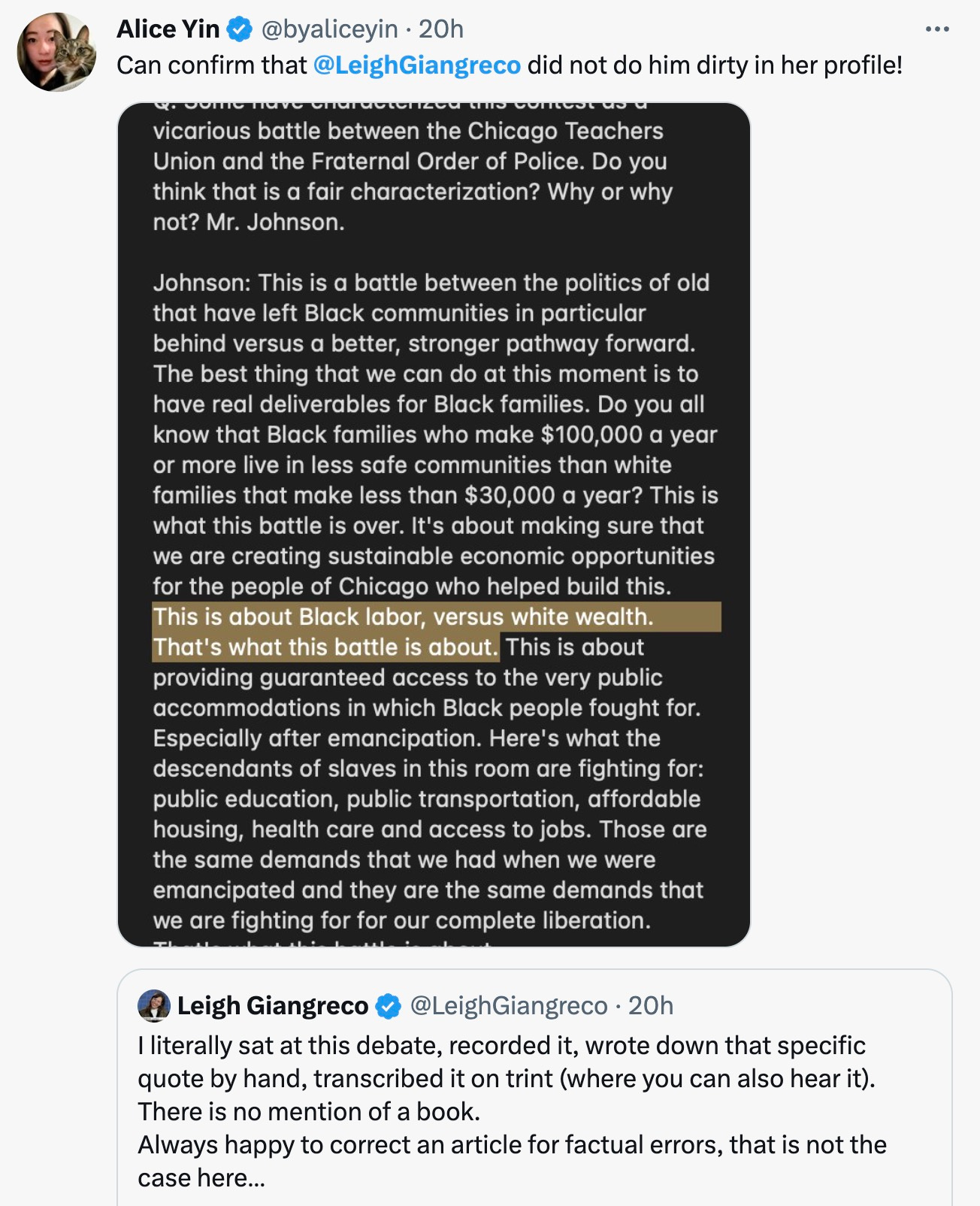





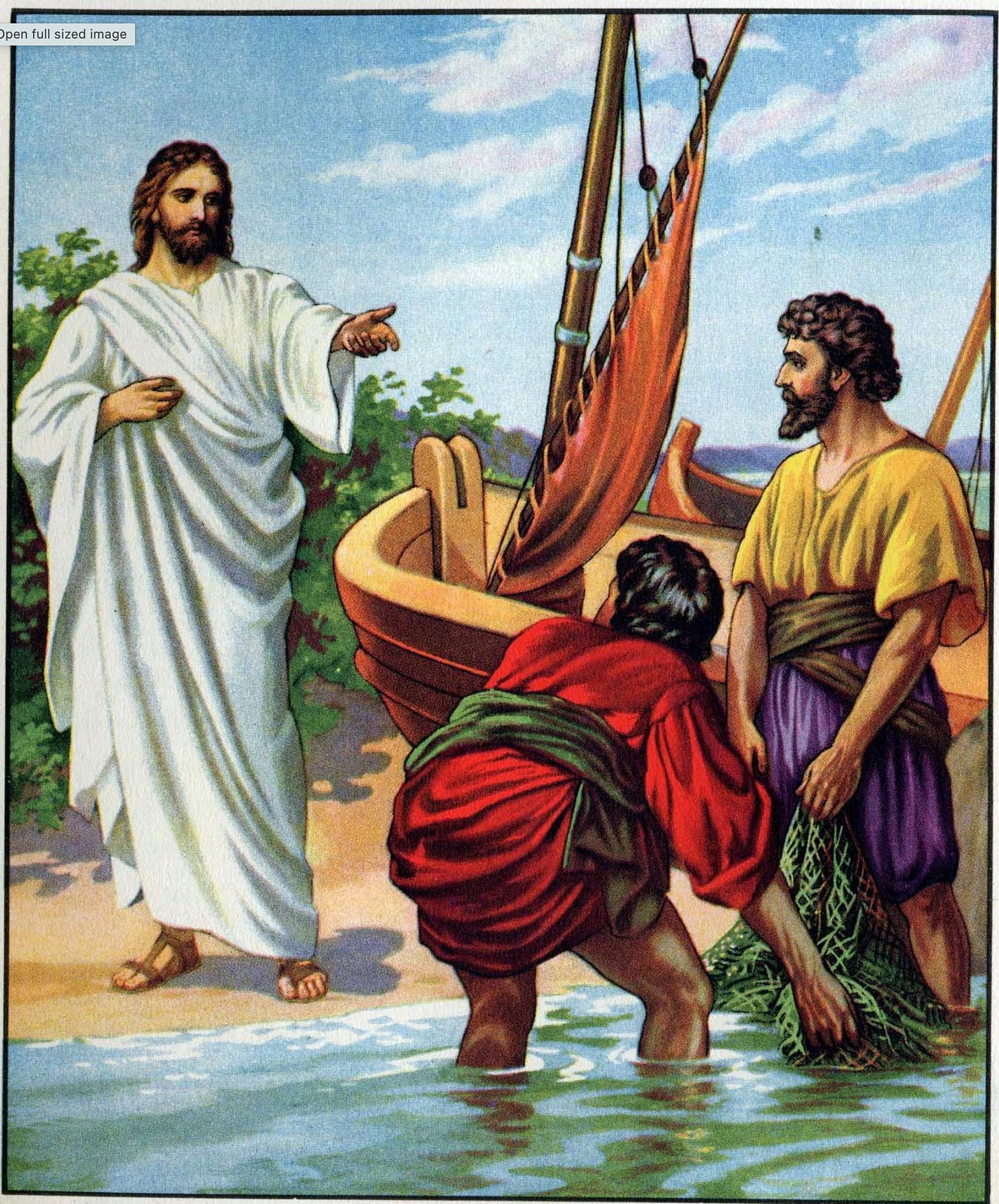
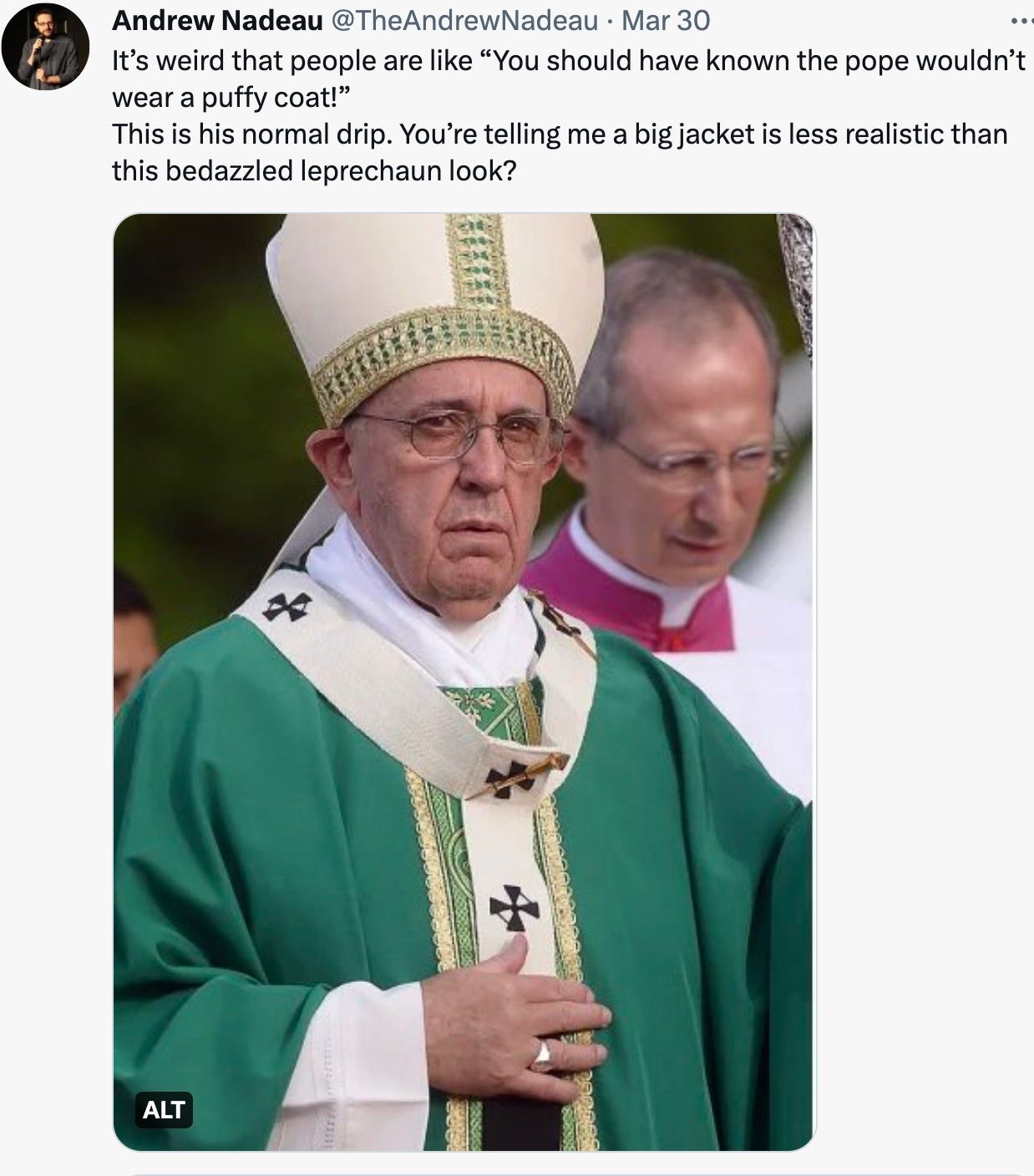
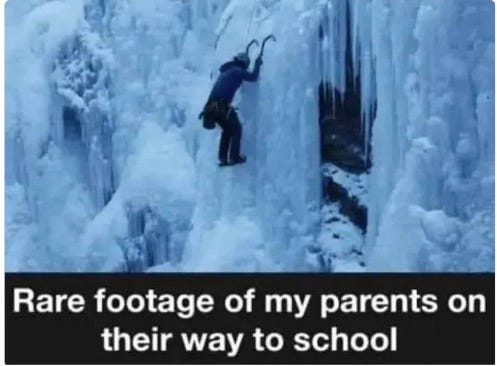
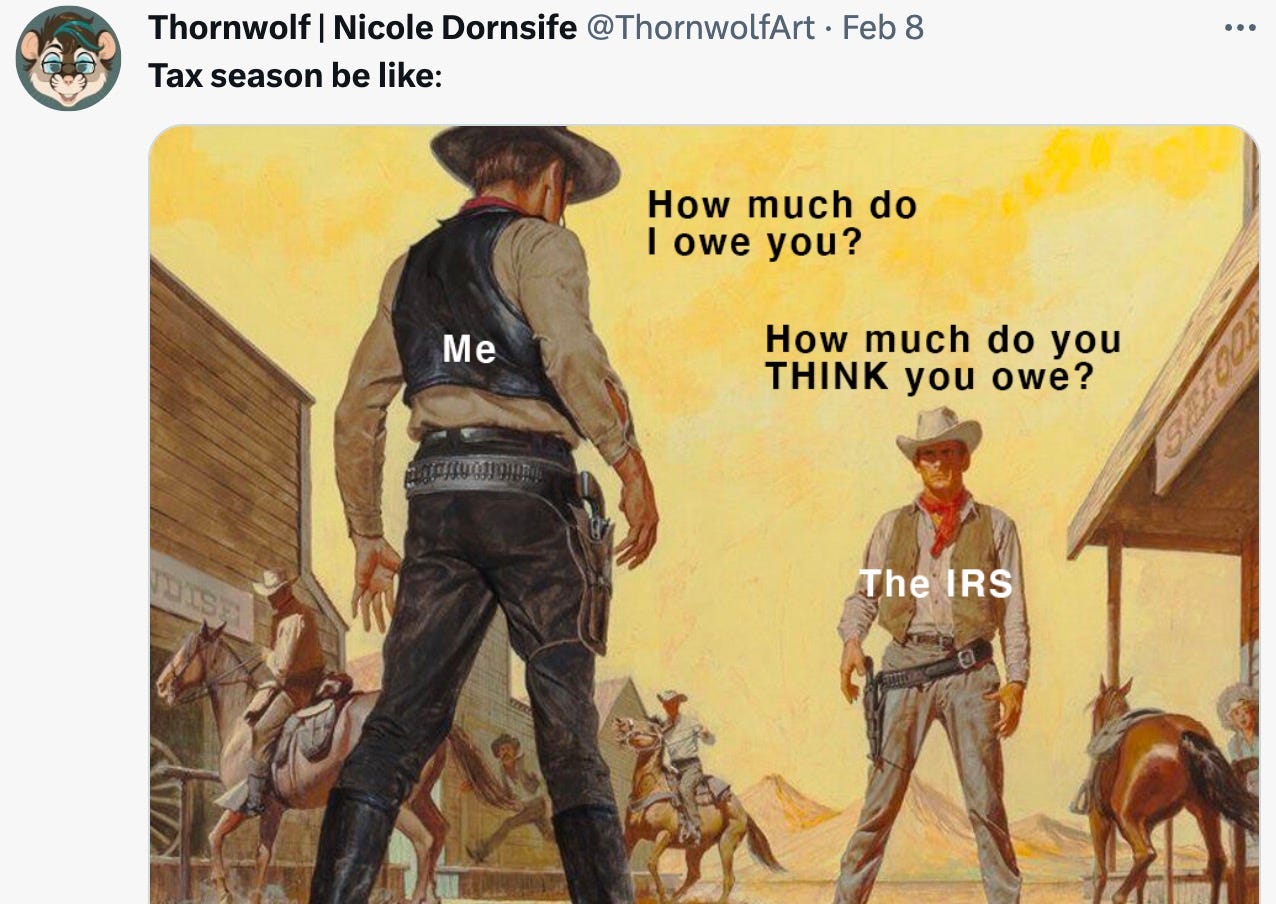
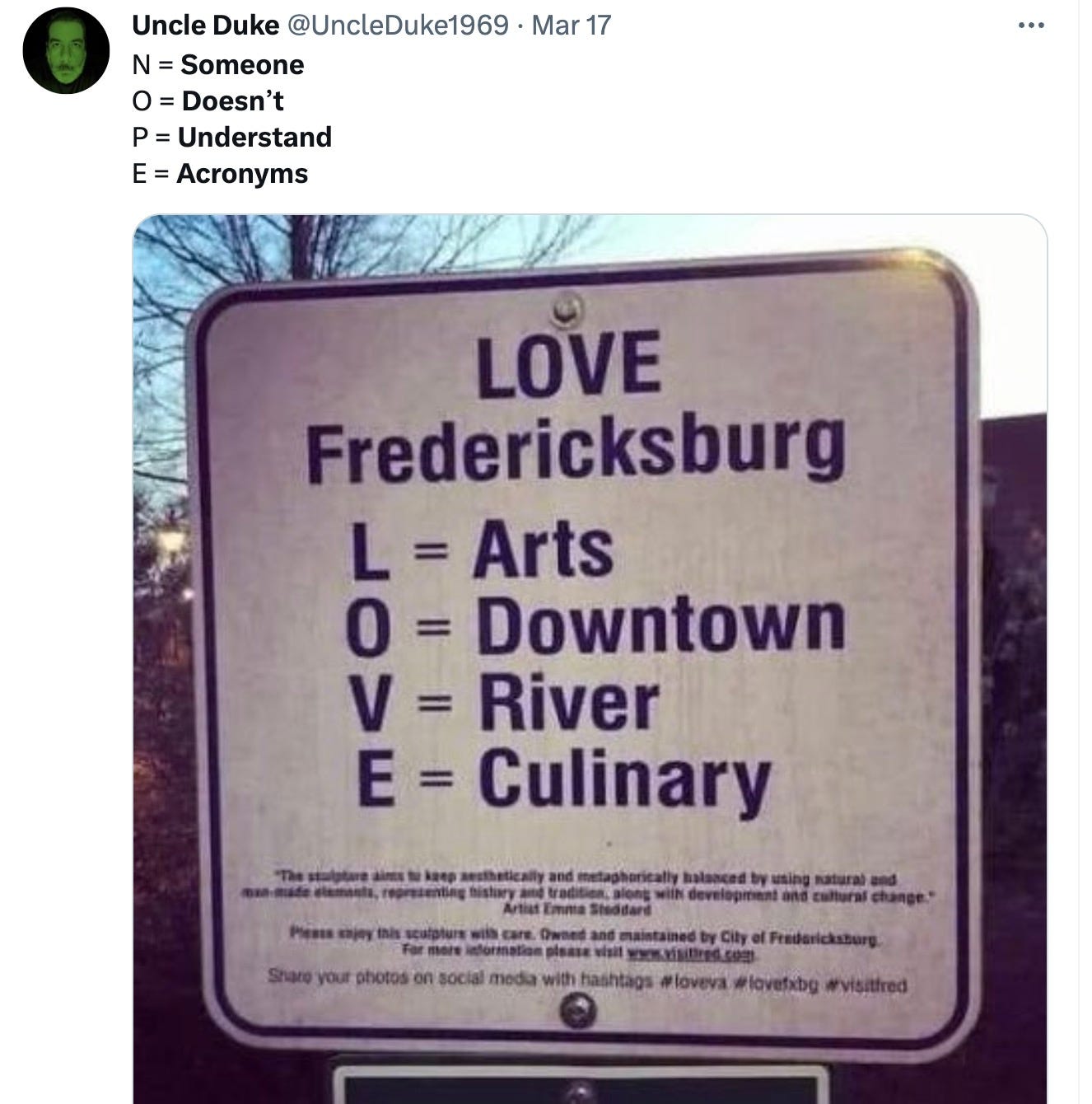


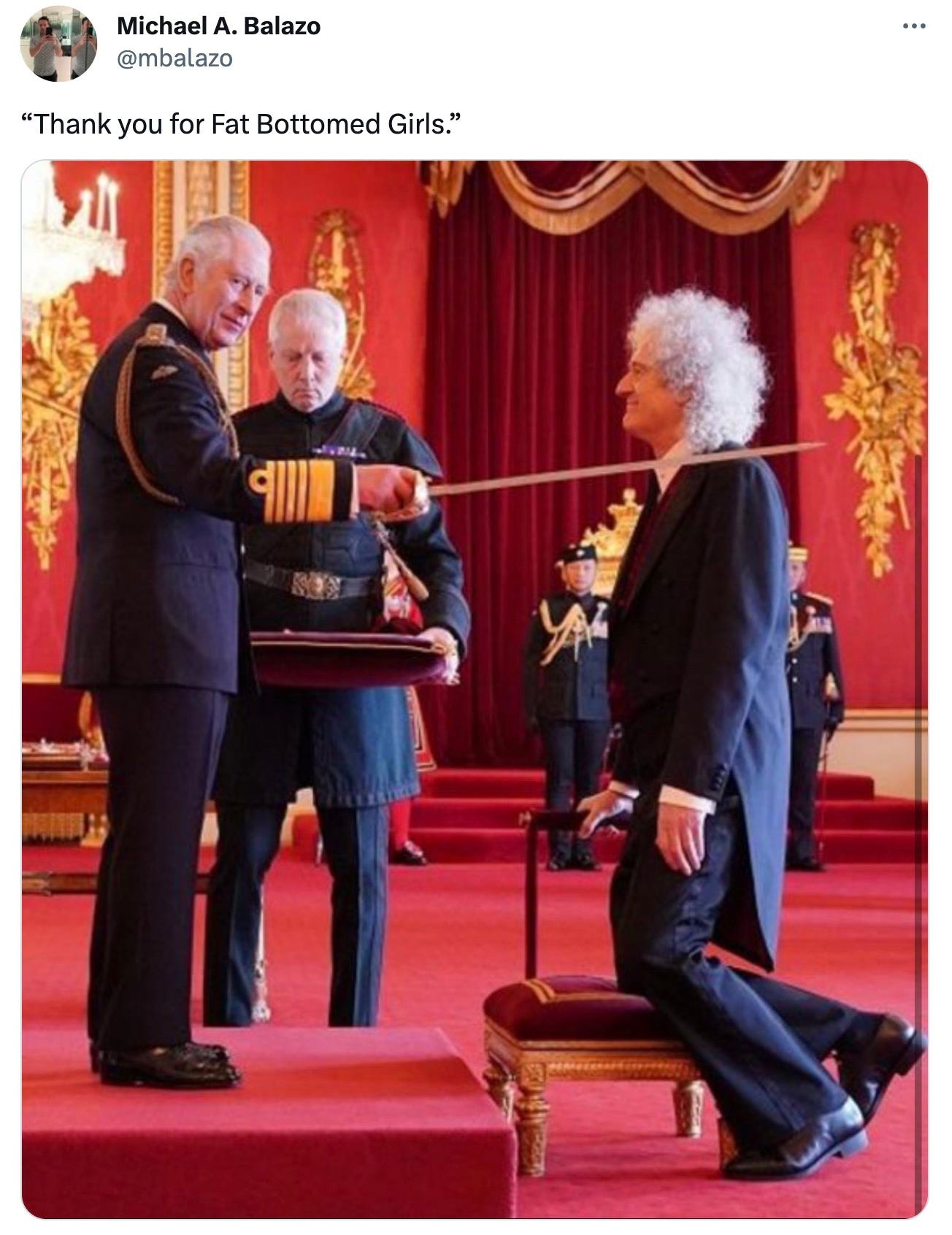

As a resident of a wealthy suburb I think the “secret sauce” is this based on an observation from a good friend who had a kid in kindergarten with mine and had also been a teacher in a school with a very economically disadvantaged population in the city: On the first day of kindergarten here more than half of the kids in our kids’ class could read and many of them were reading several years above grade level. Almost all of the others knew their letters and had some pre-reading skills. In the school in which she taught First grade, none of her students came in reading and less than a quarter knew their alphabet. Wealthy school districts have such a leg up from the start that it’s not the money and the teachers so much as the resources that the students are lucky enough to be provided with at home, that makes a true difference.
Want to know how people really feel about “school choice”? Note any community’s response to adding subsidized, multi-family housing.